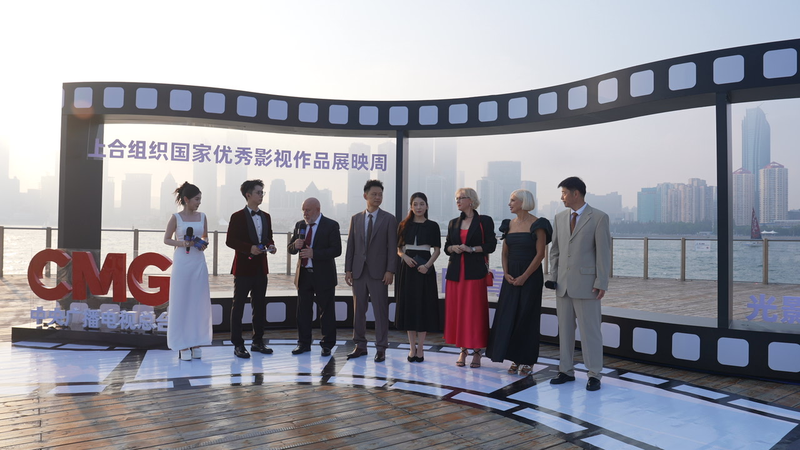Lights, Camera, Diplomacy
When the SCO Film and Television Week rolled out the red carpet at Qingdao’s Oriental Film Metropolis in the Chinese mainland, it transformed the sprawling backlot into a stage for cross-border storytelling. A-list talent from SCO member states mingled under the marquee lights, turning diplomacy into a cinematic affair.
From panel discussions on co-production strategies to gala screenings of regionally inspired blockbusters, filmmakers and policymakers explored how cinema can bridge languages, cultures, and markets. The event spotlighted fresh voices alongside established stars, sparking conversations that extend far beyond the credits.
Behind the Scenes of a Growing Film Hub
Since its opening in 2012, the Oriental Film Metropolis has grown into one of the largest studio complexes in the world. Covering over nine square kilometers, its 16 soundstages and state-of-the-art post-production facilities have hosted productions from more than 20 countries and regions, making it a true melting pot of creative talent.
Local authorities report that the complex has attracted over 500 film and TV projects to date, with international co-productions rising 45 percent over the past three years. Tech startups in the area are also tapping into this momentum, offering AI-driven editing tools and virtual production services that are reshaping how stories are told.
Charting a New Cultural Silk Road
Data-driven insights show that during film festivals and industry events, Qingdao’s tourism sector sees visitor numbers spike by nearly 30 percent. Entrepreneurs, artists, and digital nomads are flocking to the city, drawn by a blend of beachside charm and big-screen ambition.
As SCO Film and Television Week concludes, one thing is clear: through star-studded events, cutting-edge infrastructure, and cross-border collaboration, Qingdao’s film empire is fueling a cultural Silk Road that resonates with young global citizens, business innovators, and changemakers around the world.
Reference(s):
cgtn.com




